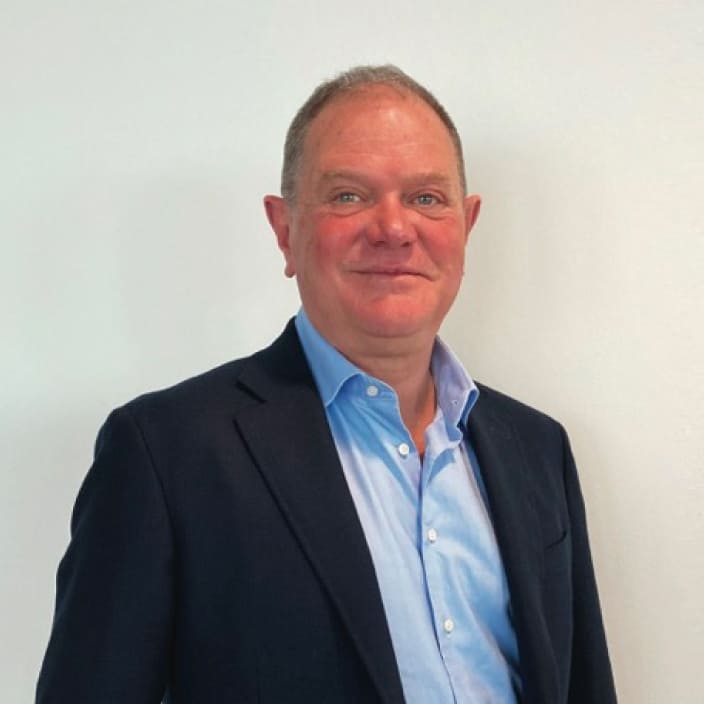
We have entered the year 2022 with a renewed awareness: reducing CO2 emissions to zero by 2050 after having already halved them by 2030 will not be an easy objective to fulfill, but it cannot be any further delayed considering the urgency to contain the effects of global warming.
Looking around, it seems that many companies and managers have stopped analyzing the present and listening to the voice of the companies they govern, engulfed in anxiety about the demands of the future. However, there are also those companies that consider it wise and productive to spend time observing what is happening internally, knowing that the results of a company go hand in hand with its level of innovation.
Ironically, finding the right solution to a problem is often not the most difficult thing to do, but understanding exactly where the problem lies and then being able to think in an unconventional way, independent of one’s existing capabilities, about what might be the best way to solve it. Furthermore, all too often, innovative ideas remain dormant at the lower levels of an organization. A little out of fear, a little out of insecurity, a little out of an inability to think of a different way of doing things and creating business.
After joining Maire Tecnimont, I have grown stronger in the conviction that the best businesses are conceived from the best ideas. And that these ideas are the result of a strong collective creativity and a marked ability to observe and rigorously analyze existing and often poorly articulated markets and needs. In an increasingly globalized market, our group, for some time now, has made the company-research combination its own, obtaining concrete results by virtue of a model of open and continuous innovation.

ACCORDING TO THE GROUP’S CHIEF TECHNOLOGY INNOVATION OFFICER, ANTONIO BATISTINI, IN AN INCREASINGLY GLOBALIZED MARKET, MAIRE TECNIMONT HAS LONG EMBRACED THE BUSINESS-RESEARCH DUO, ACHIEVING CONCRETE RESULTS THROUGH A MODEL OF OPEN AND CONTINUOUS INNOVATION.
In an era when technological development is increasingly fast-paced and sophisticated, it becomes vital for a company to accelerate and focus on its ability to absorb external knowledge in order to create greater value and compete in the global marketplace in an increasingly distinctive way. Open Innovation is just that. A continuous intermingling and cross-fertilization of solutions, ideas, technological competences and external resources from which to draw upon. It is a system that allows one to take a new approach towards economic scenarios and to share value more equitably within what are often new supply chains, and with new participants as opposed to existing businesses. All around us, start-ups, universities, research institutes, inventors, programmers, incubators and accelerators are constantly evolving. There is no doubt, therefore, that dealing with resources that are unconventional and constantly being innovated can prove to be a strategic, competitive and successful method. A large part of open innovation lies in the realization of incremental process innovations and this offers a double advantage to both the multinational promoter - who can employ (and patent) a performing idea of others - and the small realities (such as start-ups and research laboratories) in need of economic means to develop their inspirations, turning them into reality.
In our field, we see how the green economy is changing the way of doing business, forcing companies to rethink their business models. The approach to dealing with environmental issues can no longer be bureaucratic and defensive as far as the environmental quality of production processes and products is concerned, but should be proactive and competitive instead. For this reason, companies need innovative tools and approaches, new forms of reporting, and strategies dedicated to a business that must be “green” from the outset, starting with the design of new products to be offered on the market. Entrepreneurs and managers have understood that developing the idea of eco-innovation will make more and more of a difference.

“AT MAIRE TECNIMONT, WE FOSTER THE CREATION OF NEW SUSTAINABLE MODELS EVERY DAY IN ORDER TO BE AN ACTIVE PART ALONG THE SUPPLY CHAIN OF NEW BUSINESS AREAS.”
Antonio Batistini, Maire Tecnimont ChiefTechnology Innovation OfficerThe ecological transition is largely one of energy transition and circular economy, that is, the recovery, recycling and valorization of waste. If we examine the scenario, all the major players (both producers and buyers of plastics) are moving towards recycling and bioplastics, while the major oil companies are reviewing their investment plans with a view towards decarbonization. Today, thanks to its technological DNA and its leadership in the transformation of natural resources, Maire Tecnimont is perfectly positioned to act on the curve of innovation with just the right timing, to be the technological and industrial partner of reference in governing the energy transition underway.
In an issue of EVOLVE such as this one, dedicated to the vision of the next decade (according to the motto “Our tomorrow is now!”), a central role is undoubtedly occupied by NextChem, specialized in green chemistry and circular economy, with a continuously developing portfolio of patented technologies, exclusively licensed technologies, technology integration platforms, EPC contracts and partnership and coordination roles in several international research projects. Thanks to this background, Maire Tecnimont has looked to the future and has already become the ideal partner for the industrialization and commercialization of innovative sustainable products. Following the principle of low capital intensity, collaborations and technology scouting at a global level, NextChem is able to bridge the gap between a laboratory idea and industrial-scale production, in view of the energy transition that is focused on the reduction of the impact of CO2, new products made from renewable raw materials and new green markets.
At Maire Tecnimont we guide the creation of new sustainable models every day, in order to be an active part along the supply chain of new business areas (environmental remediation, renewable energies, recycling and low carbon fuels being just a few examples). Bearing in mind the often-pressing need for new solutions associated with the sustainability of strategic businesses and the reduction of CO2 emissions from traditional assets, our group is moving relentlessly forward with an increasingly integrated roadmap, acting as a developer of detailed projects and coordinating the work of the various players: industrial companies, producers, waste managers, institutional bodies, regulators and investors. If, on the one hand, institutions must be able to support innovation in the sector, on the other, companies must work as a system, promoting supply chain agreements with joint research and study platforms.

THERE IS “RAW MATERIAL” OUT THERE OF SUCH HIGH QUALITY THAT EVEN THE BRIGHTEST COMPANIES CAN’T AFFORD TO SIT BACK AND IGNORE IT
Antonio Batistini, Maire Tecnimont ChiefTechnology Innovation OfficerKnowing that the transformation of waste is the real sustainable challenge of the future, Maire Tecnimont is committed to the growth of the circular economy by looking at the system from a broader perspective, capable of grasping the symbiosis among different sectors, between agriculture and industry, between the agro-food chain and chemistry: what for one is waste, for the other can become raw material. Hence the importance, for example, of our proprietary Upcycling technologies, which enable perfect circularity by transforming post-consumer plastic waste into high-performance polymers that can replace virgin plastics. Or of our bio-based green chemistry technologies, which enable integration with existing plants to produce intermediates and biofuels from residual oils and fats. As well as chemical recycling technologies that facilitate the production of circular gas, circular hydrogen, alcohols and hydrocarbons, plus other valuable molecules from non-recyclable plastic and dry waste. With a double benefit on the circularity and CO2 reduction front, without neglecting sustainability on an economic level.
Among the Blue Oceans - places where we can assert our initiative in innovation and our ability to anticipate demand - is the choice of Chairman Fabrizio Di Amato to finance the Chair of Open Innovation and Sustainability at Luiss Guido Carli in Rome, entrusted to Professor Henry Chesbrough, intellectual father of the very concept of Open Innovation and director of the Garwood Centre for Corporate Innovation at the University of California at Berkeley. It is a course of study for managers, entrepreneurs and professionals who will have to handle continuous innovation as an evolutionary process according to an open-minded approach: a step into the future that helps companies, large and small, transform from closed to open organizations. Since, to quote Chesbrough himself, «there is “raw material” out there of such high quality that even the brightest companies can’t afford to sit back and ignore it».
Investing in the past to look toward the future